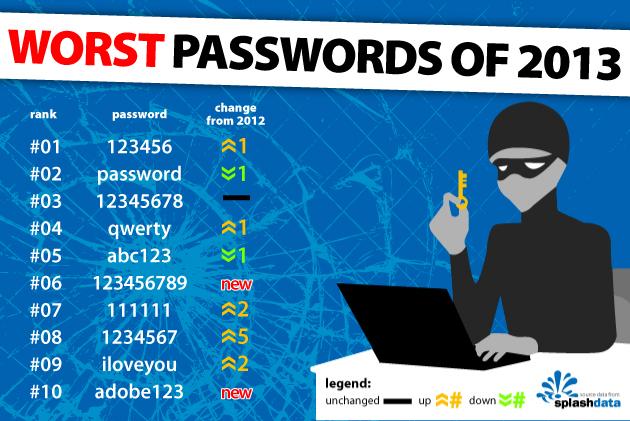I think this is a good time to test out the script I’ve been working on. I designed it so that it would print the viewer’s password. Now, there’s a few tweaks I need to fix. But it should show a password to a random website you logged on to. It doesn’t work with usernames, though.
USERNAME: ******
PASSWORD: 123456
Now, some of you are just extremely shocked on how I managed to do that. Others, realized this was a joke. Most of you (I hope all of you) don’t use common passwords like 123456, password, qwerty, and qwerty1. And if even one of you has the password “letmein,” I will come after you. Be warned.
Step 1: Get antivirus protection. Bitdefender is one of the best antivirus programs, but if you’re short on cash, get AVG. This will not only protect your passwords and online identity, safe, but it will also protect your computer. Don’t feel like you need to spend the extra bucks for bitdefender, AVG will protect your computer as well.
Step 2: Be careful on the internet. You’re only as strong as your weakest link. And if you use the same password, repeatedly on every website you have been on, you probably have a lot of weak links. You see, not every website owner stores passwords correctly. You’re not supposed to store passwords just like that. You see, imagine a machine: When you create an account, the server should put your password into that machine, and receive a unique code. That unique code is then stored, and every time you send them your password again by logging on, the password is put into the machine again, and it checks if the two codes match up. However, it’s incredibly simple to mess up this process by the server administrator. So, if a hacker goes into a server to steal passwords, and happens to stumble upon yours, all your passwords from the other websites are now useless.
Take note: Adobe. The huge company, Adobe, responsible for Photoshop, Macromedia, Flash, and everything else people use. They did not store their passwords correctly. The outcome of it? The codes were leaked along with the password hints. This inspired a “password crossword” that I really recommend you check out.
That’s not even the end of the story when it comes to internet safety. People make websites that are almost an exact replica of very popular websites. You unknowingly type in your username and password, and now that server administrator, knows your password.
Step 3: I’ve saved the best for last. Keepass. I simply can’t live without keepass anymore. This is a program that can randomly generate 32 character length passwords, and store them onto a database on your computer. This combined with an online storage software like Dropbox or Google Drive can help you in so many ways. When you first open Keepass, you’ll create a .kdbx file with a master password. And after that, it’s smooth sailing. Keep the file in the dropbox folder, and you could quite literally carry 160 bit passwords with you anywhere, using your mobile device. However, please note: save. I won’t be responsible if you forget to save and lose a password. Some notable features include: auto type, copy to clipboard, and erase clipboard after x seconds. All the passwords are secure and with you. As long as you don’t use something like “aaaaaa” as your password.
And remember, my friends. Stay classy.

